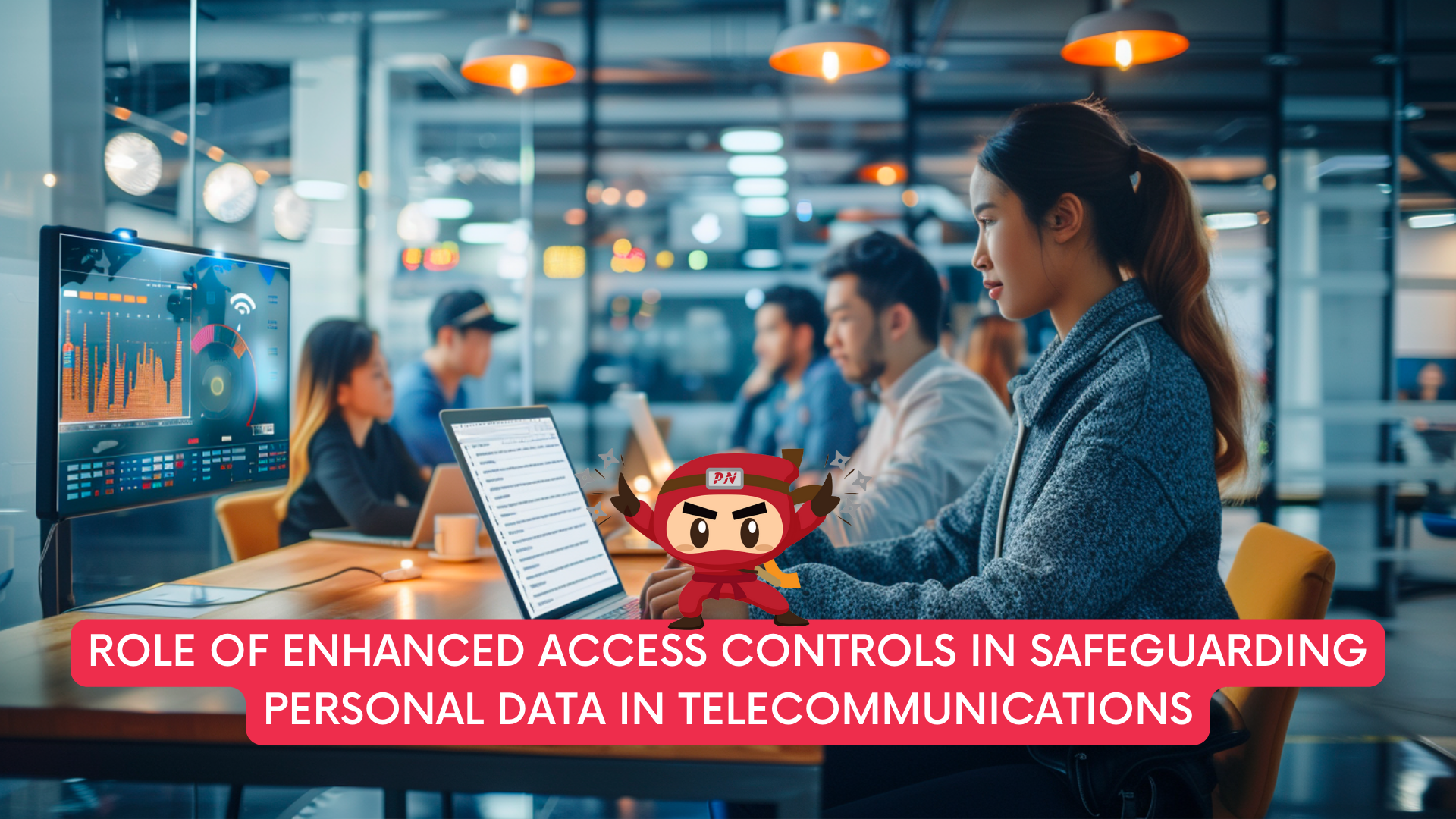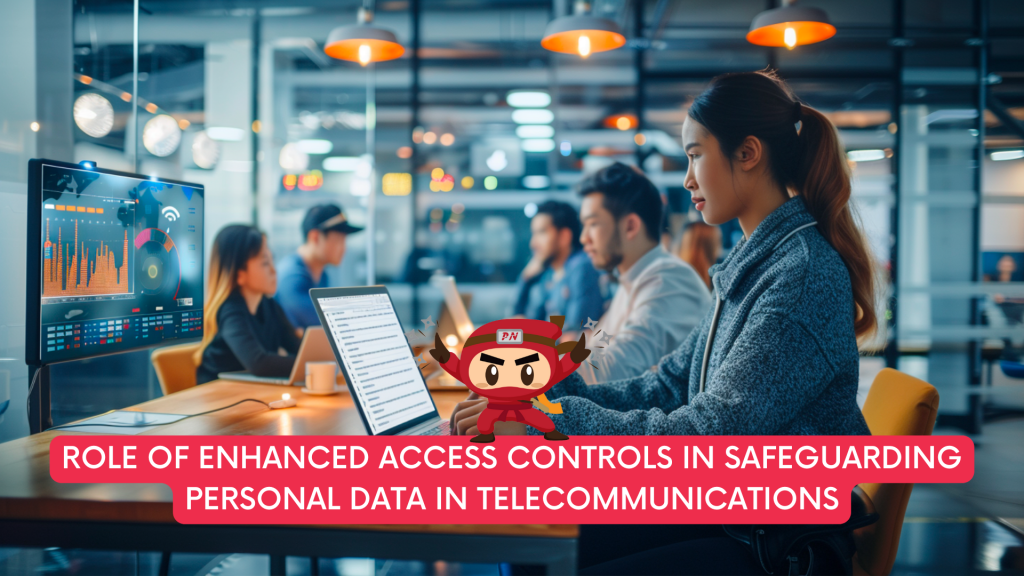KEEP IN TOUCH
Subscribe to our mailing list to get free tips on Data Protection and Cybersecurity updates weekly!







In the rapidly evolving landscape of telecommunications, where the exchange of vast amounts of personal data is integral to operations, ensuring the security and privacy of this data is a must. As the custodians of sensitive information, telecommunications providers bear a significant responsibility to implement robust measures that protect the privacy and integrity of personal data. Central to this endeavor is the recognition that the type of personal data collected and utilized by an organization dictates the level of protection required. In this article, we delve into the importance of enhanced access controls as a fundamental safeguard for personal data within telecommunications organizations.
The proliferation of digital technologies has led to an unprecedented generation and utilization of personal data across various industries, with telecommunications being no exception. From customer profiles and communication metadata to billing information and location data, telecommunications providers handle a plethora of sensitive information on a daily basis. This wealth of personal data, if compromised, can have far-reaching consequences, including identity theft, financial fraud, and breaches of privacy.
Recognizing the criticality of protecting personal data, regulatory bodies worldwide have enacted stringent data protection laws and regulations. From the European Union’s General Data Protection Regulation (GDPR) to the California Consumer Privacy Act (CCPA), these mandates underscore the imperative for organizations to implement robust data protection measures and uphold the privacy rights of individuals.

At the heart of any comprehensive data protection strategy lies the implementation of access controls. Access controls refer to the mechanisms and policies that govern who can access specific resources or perform certain actions within an organization’s IT infrastructure. Within the context of telecommunications, where personal data is a cornerstone of operations, enhanced access controls are indispensable in safeguarding against unauthorized access and data breaches.
The sensitivity of personal data varies widely depending on factors such as the nature of the information, its intended use, and regulatory requirements. As such, telecommunications providers must adopt a risk-based approach to access control, wherein the level of protection is commensurate with the sensitivity of the data being handled.
For instance, personally identifiable information (PII) such as names, addresses, and social security numbers necessitates stringent access controls to prevent unauthorized disclosure or misuse. Access to such data should be restricted to authorized personnel on a need-to-know basis, with strong authentication mechanisms such as multi-factor authentication (MFA) employed to verify user identity.
Similarly, communication metadata, including call records, text messages, and internet usage logs, may be subject to heightened privacy concerns. While this data may not directly reveal the identity of individuals, it can still provide valuable insights into users’ behaviors and preferences. As such, access controls should be implemented to limit access to this metadata and prevent its misuse or unauthorized disclosure.
Effective implementation of enhanced access controls entails a multi-faceted approach that encompasses technical, administrative, and procedural measures:

Telecommunications providers serve as custodians of vast amounts of personal data. The protection of this data is not just a legal requirement but a moral imperative to safeguard individuals’ privacy and uphold their trust. Enhanced access controls play a pivotal role in this endeavor, serving as the frontline defense against unauthorized access and data breaches. By implementing robust access control mechanisms tailored to the sensitivity of personal data, telecommunications organizations can mitigate risks, preserve privacy, and uphold the integrity of their data ecosystems.
Your appointed DPO can work with you on your PDPA compliance, ensuring that there will be policies in place to make sure that the handling of personal data is PDPA compliant.
A Data Protection Officer (DPO) oversees data protection responsibilities and ensures that organisations comply with the Personal Data Protection Act (PDPA). Furthermore, every Organisation’s DPO should be able to curb any instances of PDPA noncompliance as it is the officer responsible for maintaining the positive posture of an organisation’s cybersecurity.
DPOs complement organisations’ efforts to ensure that the organisation’s methods of collecting personal data comply with the PDPA. It also ensures that policies are set in place to make sure that there will be no instances of data breaches in the future.
Don’t wait any longer to ensure your organisation is PDPA compliant. Take our free 3-minute PDPA Compliance Self-audit checklist now, the same “secret weapon” used by our clients to keep them on track. Upon completion, we will send you the results so you can take the necessary action to protect your customers’ data. Complete the free assessment checklist today and take the first step towards protecting your customers’ personal data.